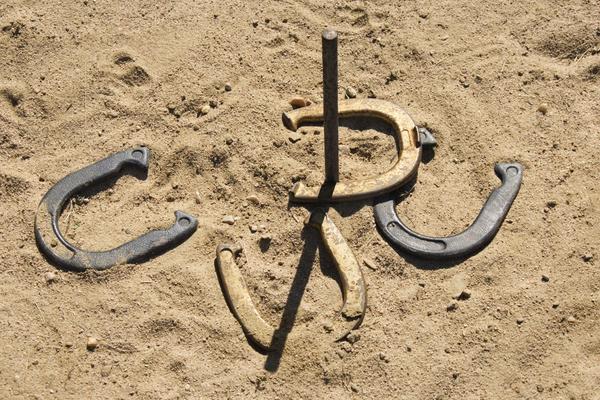 In Mark 1-3 Jesus demonstrated a successful stance against the constant attacks of the enemy. I believe it won’t surprise you to know that if you keep reading the Gospel account, Jesus continued to be attacked and continues to achieve victory. Spiritual warfare is real. It is happening now just as it was then. Standing your ground is, in part, an issue of identifying the enemy’s strategy and practicing for the day he turns the darts on you. Yet, that isn’t ALL there is to learning to be a disciple of Jesus. The story continued…
In Mark 1-3 Jesus demonstrated a successful stance against the constant attacks of the enemy. I believe it won’t surprise you to know that if you keep reading the Gospel account, Jesus continued to be attacked and continues to achieve victory. Spiritual warfare is real. It is happening now just as it was then. Standing your ground is, in part, an issue of identifying the enemy’s strategy and practicing for the day he turns the darts on you. Yet, that isn’t ALL there is to learning to be a disciple of Jesus. The story continued…
In the account we call Mark’s Gospel, most of us believe we are reading the organization of the earthly work of Jesus that was originally preached by the Apostle Peter and then carefully recorded and spread to the churches by a leader in the younger generation than the Apostles, one named John Mark. He was a contemporary of Timothy, and a follower of Paul and the other original missionary groups. Mark emphasized the WORK of Jesus, and if you follow his account closely you will see how the Master accomplished His mission, and (by example) how God works in our lives to shape us to be like Jesus.
I have a confession to make as we begin: I cannot sculpt, nor can I use modeling clay to make anything anyone else would call “art” but I love to watch it being done. It is fascinating to see an artist take some lumps of refined earth and make them into something beautiful. If we can, I would like you to observe an artist making clay into the representation of a young woman.
(During video) If you watch closely, you will notice that in order to make the bust of this young woman the artist worked in three deliberate steps:
• First, she started with a rounded base approximating the head and added to that base some lumps that built up the underlying structure.
• Second, the artist pressed in or cut away any additional material that was not desired. That “extra” would have marred the face and shape – so it was taken away.
• Third, the artist carefully and gently smoothed the surface, healing any tiny breach while filling over any wrinkle. By this step the artist allowed the material to take its final shape.
This isn’t an art seminar, but I want you to consider something – this is the same way God adds to our life truth as He models us to be like Jesus. He puts us into situations where we can gain truth from Him, then scrapes across our life with troubles to remove the excess. Finally, if we allow Him to do it, He shapes us with His own artistic hand. Let me show you an example from Mark 4 and 5. Remember the underlying truth…
Key Principle: Believers are shaped by three important works from the Master: Divine instruction (adding), daily problems (scraping) and God’s dramatic re-shaping power.
The day recorded by Mark started with a sermon, brought the disciples to fear for their safety, and ended with a shocking display of raw power… It was a day to remember…
First, let’s look at the teaching of Jesus that added truth to the disciple’s lives (4:1-34).
God doesn’t just call us and then start using us to give out His message. We are like the round clay with very little shape when we come to Him. He adds truth that helps us look more like the Master, and people who know us see the change in us as the truth is put on our lives. Let me show you an example in Jesus adding to the disciples long ago…
We are using the account that Mark collected of the teachings of Jesus to set up the day’s events. Remember, Jesus didn’t only say things once, and sometimes He repeated an illustration but changed its meaning – that was the way of teaching familiar to the crowds of that time. The text opened:
Mark 4:1 He began to teach again by the sea. And such a very large crowd gathered to Him that He got into a boat in the sea and sat down, and the whole crowd was by the sea on the land. 2 And He was teaching them many things in parables, and was saying to them in His teaching…
Let’s make a quick note of three things:
• First, Jesus was already well-known and popular at the time of these teachings. This wasn’t His first sermon, and people knew His style and liked it very much.
• Second, let’s stipulate this was the dry season (because the rainy season was too cold and wet for a large crowd) and that it was early morning (since you can fry an egg on a rock in that area by mid-day in the dry season).
• Third, Jesus used a teaching method called a “mashal” or parable. This brought the truth of Heaven into bite-sized earthy chunks.
Five Truths
As we get into the meat of the teaching, Jesus taught five truths to His disciples.
Truth #1: The hearer is responsible for hearing.
Here is the first, a simple parable about a man throwing seed on the ground:
Mark 4:3 “Listen to this! Behold, the sower went out to sow; 4 as he was sowing: Some seed fell beside the road, and the birds came and ate it up. 5 Other seed fell on the rocky ground where it did not have much soil, and immediately it sprang up because it had no depth of soil. 6 And after the sun had risen, it was scorched; and because it had no root, it withered away. 7 Other seed fell among the thorns, and the thorns came up and choked it, and it yielded no crop. 8 Other seeds fell into the good soil, and as they grew up and increased, they yielded a crop and produced thirty, sixty, and a hundredfold. 9 And He was saying, “He who has ears to hear, let him hear.”
In this teaching, Jesus referred to agriculture on terraces. The ground on the terrace covered a slope of bedrock. The edge had (and still has) a rocky wall filled with weeds and thorny bushes whose roots hold the wall fast. There is often a path through the center of the terrace used as a walkway by those passing through. The good seed would normally be cast between olive trees and yield varying amounts, depending on where the seed fell. Keep reading for a moment:
Mark 4:10 As soon as He was alone, His followers, along with the twelve, began asking Him about the parables. 11 And He was saying to them, “To you has been given the mystery of the kingdom of God, but those who are outside get everything in parables, 12 so that WHILE SEEING, THEY MAY SEE AND NOT PERCEIVE, AND WHILE HEARING, THEY MAY HEAR AND NOT UNDERSTAND, OTHERWISE THEY MIGHT RETURN AND BE FORGIVEN.” 13 And He said to them, “Do you not understand this parable? How will you understand all the parables?
Note the fact that when they got alone, they quizzed Jesus on WHY He was teaching in parables instead of plain speaking.
To understand His response, you must realize one of the most basic tendencies of a disciple is to leave following Jesus and work at figuring out Jesus.
Many of us are tempted to spend time counseling Jesus on how He should be running things. This was true at the beginning as well. The disciples didn’t fully appreciate Jesus’ choices for packaging the truths He put in front of them. Perhaps they fancied crowd-pleasing tidbits and tempting promises. That wouldn’t be unusual for a large crowd of this sort… but Jesus wanted to show them the people that don’t stick aren’t entirely the problem of presenter nor of the presentation – the recipient bore some responsibility to receive the truth openly.
Don’t forget that when you communicate God’s Word to people. Some won’t receive it, and it ISN’T your fault. They have to want to hear what God said in His Word.
It is worth noting that Jesus’ primary concern wasn’t to make His preaching as easy as it could have been. He expected something from the hearer – a heart open to Him! Let’s be clear: People have to surrender and engage, not pick through the words for self-serving promises.
The truth is we will accomplish more of our mission with 100 surrendered and engaged Jesus-followers than we ever could with 10,000 disengaged spectators or 1000 mildly-engaged fair weather friends.
Jesus made clear He wanted the crowd to follow, but only if they were willing to hear what He truly had to say and engage it in their lives! Don’t forget – the soil didn’t HEAR if it DIDN’T BEAR fruit. Look at His explanation:
Mark 4:14 “The sower sows the word. 15 These are the ones who are beside the road where the word is sown; and when they hear, immediately Satan comes and takes away the word, which has been sown in them. 16 In a similar way these are the ones on whom seed was sown on the rocky places, who, when they hear the word, immediately receive it with joy; 17 and they have no firm root in themselves, but are only temporary; then, when affliction or persecution arises because of the word, immediately they fall away. 18 And others are the ones on whom seed was sown among the thorns; these are the ones who have heard the word, 19 but the worries of the world, and the deceitfulness of riches, and the desires for other things enter in and choke the word, and it becomes unfruitful. 20 And those are the ones on whom seed was sown on the good soil; and they hear the word and accept it and bear fruit, thirty, sixty, and a hundredfold.”
In the lesson, Jesus observed there were different kinds of people that were listening to Him:
• Hard Hearts: There were those who were present when the Word was sown, but they did not take it in at all. They came because someone told them to be there and they were not interested enough to allow the Word to sink in.
• Troubled Temporaries: There were those who seemed to respond to the message of Jesus, but they didn’t add a life of surrender to Him. In Jesus’ explanation, when the pains and problems of life or persecution rose, they didn’t think the message was worth sacrifice– so they bailed out.
• Choked Christians: Some follow, but they get distracted by demanding work in their child-rearing age and challenging golf tournaments in their retirement. They never seem to get around to making an impact with the message. They always meant to, they just didn’t do it.
• Harvest Christians: There are those who followed, surrendered and became fruitful in life.
In the end, Jesus said, “You are responsible for listening to the truth and letting it change your behavior.”
That is convicting, and piles on truth, but that wasn’t the whole sermon. That was just Jesus’ opening illustration! Mark continued:
Mark 4:21 And He was saying to them, “A lamp is not brought to be put under a basket, is it, or under a bed? Is it not brought to be put on the lampstand? 22 For nothing is hidden, except to be revealed; nor has anything been secret, but that it would come to light. 23 If anyone has ears to hear, let him hear.”
In essence, Jesus told them an essential truth: the real and the fake would all eventually show themselves. No one can truly hide from God. He knows who is honestly surrendered and actually following. He knows who is not!
As a form, religion allows the unrighteous to act out in ways that temporarily cover their emptiness.
Yet, here is the truth: A relationship with an all-knowing God precludes faking it to the finish line. It is a really dumb idea to think we can trick God into thinking we have surrendered our life to Him when we haven’t.
Truth #2: When you truly grasp the truth, it changes you. If you didn’t change – the truth slipped past you.
Honestly, the end goal Jesus gave us isn’t to get people into the church to hear the truth but to get the truth into the church and send changed people into the world. Our prime turf of engagement isn’t under a steeple but in the town square. If you aren’t doing that, you aren’t getting the mission Jesus sent us to fulfill. Mark continued:
Mark 4:24 And He was saying to them, “Take care what you listen to. By your standard of measure it will be measured to you; and more will be given you besides. 25 For whoever has, to him more shall be given; and whoever does not have, even what he has shall be taken away from him.”
Truth #3: The primary assignment of a Jesus isn’t to run around trying to measure the life and faith of other people (but we will be tempted to do it!).
In most every religious group, some feel called to run around and decide the faithfulness of others and offer a grade to ones that measure up and those who do not seem to meet their standard. Jesus wanted His followers to be introspective, but not obnoxious about the inspection of others. We must remember that when we create a standard of judgment, it is only valuable if we are truly living by it ourselves! The account went on:
Mark 4:26 And He was saying, “The kingdom of God is like a man who casts seed upon the soil; 27 and he goes to bed at night and gets up by day, and the seed sprouts and grows—how, he himself does not know. 28 The soil produces crops by itself; first the blade, then the head, then the mature grain in the head. 29 But when the crop permits, he immediately puts in the sickle, because the harvest has come.”
By way of reassurance, Jesus offered a word of deep encouragement to the disciples.
Truth # 4: Followers don’t need to understand how everything God does truly works (but they will often want to and claim to!).
He told them that the Kingdom was able to grow and become effective without the need for them to really know all the progressions involved because the process was as natural as vegetation growth. What a word for any of us who have dear ones that live far away from us – God can reach them and grow in them the Word planted long ago! We don’t have to understand WHO God will use or HOW; we just need to understand He is able. Jesus continued:
Mark 4:30 And He said, “How shall we picture the kingdom of God, or by what parable shall we present it? 31 It is like a mustard seed, which, when sown upon the soil, though it is smaller than all the seeds that are upon the soil, 32 yet when it is sown, it grows up and becomes larger than all the garden plants and forms large branches; so that THE BIRDS OF THE AIR can NEST UNDER ITS SHADE.” 33 With many such parables He was speaking the word to them, so far as they were able to hear it; 34 and He did not speak to them without a parable; but He was explaining everything privately to His own disciples.
Truth #5: God often works to meet different ends than we are watching.
While the weed that was planted in the garden appears to have been a waste, it was really successful from the standpoint of the need of the birds! We have to recognize that Kingdom growth meets God’s ends, not always ours. Therefore we need to be humble. We may not be qualified to judge well what Jesus is doing in those around us.
That was a long day of teaching! Jesus added five truths to His followers and built up the base from which they could be formed to look like Him. The additions are the only way to form us to be more like Jesus. There is something else…
Second, look at the scraping that came with the troubles Jesus took His disciples through (4:35-41).
Scraping involves shrinking. It involves painful struggle. It isn’t pleasant, but it shapes us. Mark recorded and example:
Mark 4:35 On that day, when evening came, He said to them, “Let us go over to the other side.” 36 Leaving the crowd, they took Him along with them in the boat, just as He was; and other boats were with Him. 37 And there arose a fierce gale of wind, and the waves were breaking over the boat so much that the boat was already filling up. 38 Jesus Himself was in the stern, asleep on the cushion; and they woke Him and said to Him, “Teacher, do You not care that we are perishing?” 39 And He got up and rebuked the wind and said to the sea, “Hush, be still.” And the wind died down and it became perfectly calm. 40 And He said to them, “Why are you afraid? Do you still have no faith?” 41 They became very much afraid and said to one another, “Who then is this, that even the wind and the sea obey Him?”
Great teachers give students an opportunity to learn the truth by LEARNING ACTIVITIES. In this case, Jesus placed the disciples in an awkward and needy position to move their eyes from judging the current crowds to looking beyond the small world of their ministry to a lost world that struggled all around them in the grip of the evil one. He snapped them to attention by:
• Taking them where they felt unsure
• Giving them a problem while appearing unconcerned
• Letting them draw conclusions about His love: “Master don’t you care?”
• Solving their problem and amazing them
The point of the exercise was to get the men ready! God always has a point for our suffering, though we don’t often know what it is.
Why do “bad things” happen to “good people”? I can think of five reasons without really working very hard at it:
1) Sometimes it is the result of MY SIN.
Galatians 6:7 Do not be deceived, God is not mocked; for whatever a man sows, this he will also reap.
2) Sometimes it is because I live with choices of other sinners.
Romans 3:10 as it is written, “THERE IS NONE RIGHTEOUS, NOT EVEN ONE...”
3) Sometimes it is because I live in a fallen world.
Romans 8:19 For the anxious longing of the creation waits eagerly for the revealing of the sons of God. 20 For the creation was subjected to futility, not willingly, but because of Him who subjected it, in hope 21 that the creation itself also will be set free from its slavery to corruption into the freedom of the glory of the children of God. 22 For we know that the whole creation groans and suffers the pains of childbirth together until now.
4) Sometimes it is so that God can test me – that I may see who I am and who I am not.
Dt. 8:2 You shall remember all the way which the LORD your God has led you in the wilderness these forty years, that He might humble you, testing you, to know what was in your heart, whether you would keep His commandments or not.
5) Sometimes it is so that God can prepare me to comfort others.
2 Cor. 1:3 Blessed be the God and Father of our Lord Jesus Christ, the Father of mercies and God of all comfort, 4 who comforts us in all our affliction so that we will be able to comfort those who are in any affliction with the comfort with which we ourselves are comforted by God.
The disciples in this story were being prepared for a great lesson – that God has work going on well outside the places they considered. God is at work in a battle against both a brutal and vicious enemy, and a fallen world that does not work the way He created it to work. It is fallen and struggles against what God intended.
If only the disciples had recalled the work of God in the Exodus, they would have understood exactly what God was doing. He was giving them the rocking boat because that is what they NEEDED to get ready for what was coming.
More often than not, troubles come into our lives to set us up for the place God wants us to be effective if we will learn from our pain. The scraping of the artist pulls the extra from our shape and makes us more like our Master’s image.
Third, the artist transforms the work by smoothing the surface, allowing us to understand His re-shaping work (5:1-20).
In the case of Mark’s account, the disciples needed to see the transforming power of the Master to understand what He was doing IN THEM. Mark wrote:
Mark 5:1 They came to the other side of the sea, into the country of the Gerasenes. 2 When He got out of the boat, immediately a man from the tombs with an unclean spirit met Him, 3 and he had his dwelling among the tombs. And no one was able to bind him anymore, even with a chain; 4 because he had often been bound with shackles and chains, and the chains had been torn apart by him and the shackles broken in pieces, and no one was strong enough to subdue him. 5 Constantly, night and day, he was screaming among the tombs and in the mountains, and gashing himself with stones. 6 Seeing Jesus from a distance, he ran up and bowed down before Him; 7 and shouting with a loud voice, he said, “What business do we have with each other, Jesus, Son of the Most High God? I implore Yo u by God, do not torment me!” 8 For He had been saying to him, “Come out of the man, you unclean spirit!” 9 And He was asking him, “What is your name?” And he said to Him, “My name is Legion; for we are many.” 10 And he began to implore Him earnestly not to send them out of the country. 11 Now there was a large herd of swine feeding nearby on the mountain. 12 The demons implored Him, saying, “Send us into the swine so that we may enter them.” 13 Jesus gave them permission. And coming out, the unclean spirits entered the swine; and the herd rushed down the steep bank into the sea, about two thousand of them; and they were drowned in the sea. 14 Their herdsmen ran away and reported it in the city and in the country. And the people came to see what it was that had happened. 15 They came to Jesus and observed the man who had been demon-possessed sitting down, clothed and in his right mind, the very man who had had the “legion”; and they became frightened. 16 Those who had seen it described to them how it had happened to the demon-possessed man, and all about the swine. 17 And they began to implore Him to leave their region. 18 As He was getting into the boat, the man who had been demon-possessed was imploring Him that he might accompany Him. 19 And He did not let him, but He said to him, “Go home to your people and report to them what great things the Lord has done for you, and how He had mercy on you.” 20 And he went away and began to proclaim in Decapolis what great things Jesus had done for him; and everyone was amazed.
The elements of the story present the “Perfect Storm” – a nightmare from the Jewish perspective:
• They went to an unclean area filled with pagans after dark (5:1).
• They were met by a demon-empowered man who was living in the constant defilement of tombs (5:2).
• He was uncontrollable with broken chains hanging from him (5:3-4).
• He was gashed and bleeding (5:5).
• He ran abruptly toward them (5:6).
• Demons spoke from his throat (5:7-8).
• Pigs were eating along the nearby slope (5:11).
• The healed man wanted to come home with them (5:18)!
The storm on the sea prepared the men to follow Jesus into the storm on the land – a struggle against barriers of fear to fight the enemy openly. Jesus was able to defeat the enemy’s minions, and the men saw the transforming power of Jesus.
In the end, these stories returned to the fight of Jesus in spiritual warfare against His enemy.
Step back and put the three pieces together:
• Jesus taught and added truth to them.
• Trouble scraped and extracted self-assurance from them.
• Transformation showed God’s ability to re-make people.
After I have followed Jesus for a long time, it is easy to forget how powerful, magnificent and life-changing time with Him truly is! Many of us have found ourselves secretly questioning what God is doing in our lives. We don’t like pain and we don’t want trouble. We are focused on the wrong things… Remember:
Believers are shaped by three important experiences: God’s instruction, life’s problems, and God’s shaping power.
Don’t kick against any of them – they are making you into what God intends you to be!




















